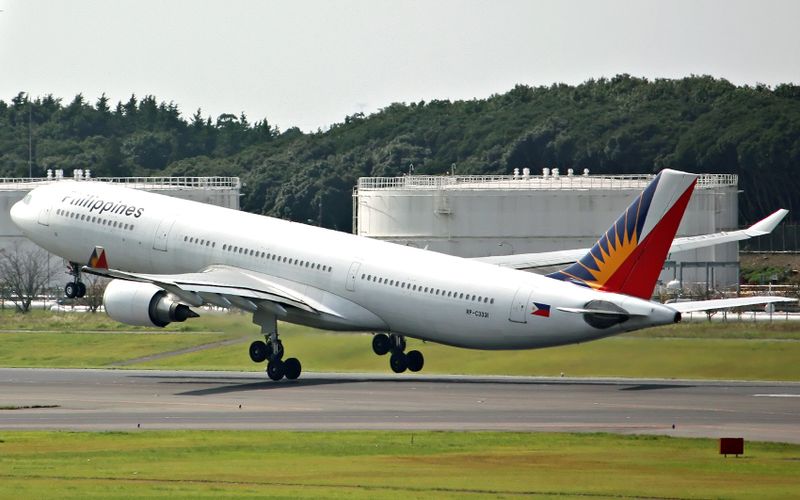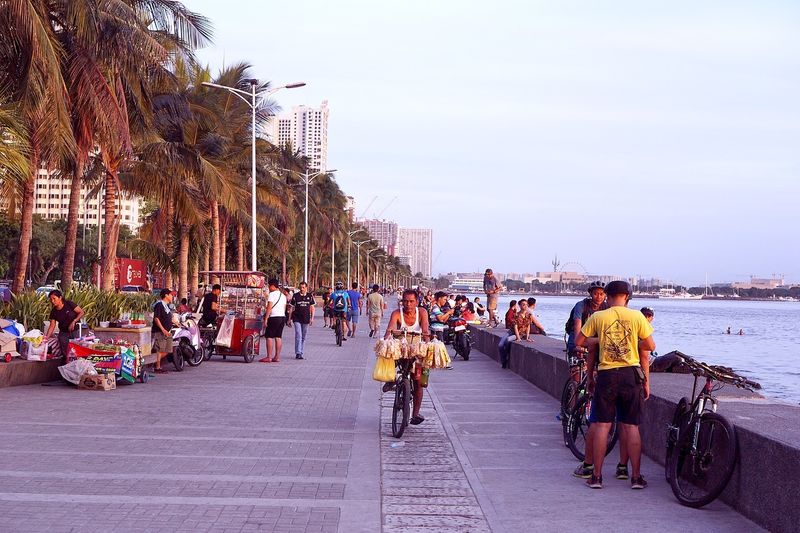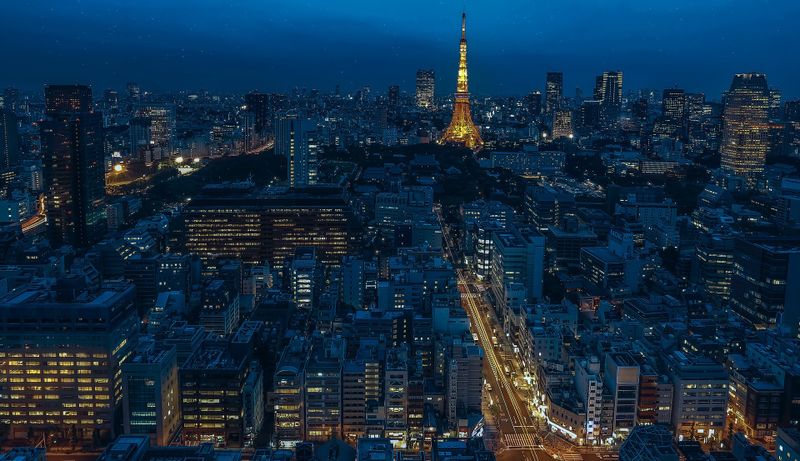Oct 10, 2017
How much does it cost to travel from the Philippines to Japan?
The most common route for travel from the Philippines to Japan is that served by flights between Manila and the international airports in Tokyo. Flight times for direct flights plying this route are typically over four hours, sometimes going up to six. The distance between Manila and Tokyo is almost 3,000 km on the nose. With daily departures from the Philippine capital to Tokyo, as well as departures to other destinations within Japan, getting from the Philippines to Japan by air shouldn’t pose too many logistical problems, and at this kind of distance, will be reasonably priced compared to those journeys expats arriving from the West and other parts of the globe might have to pay for. In attempting to answer the question, "How much does it cost to travel from the Philippines to Japan?", we break down the flight options, starting with direct flight from Manila to Tokyo, before going on to look at indirect flights and alternative air hubs in both countries.
NB* - All fares and costs displayed in U.S dollars
Direct flights from Manila to Tokyo
At the time of writing, the following carriers were offering direct flights from Manila (Manila Ninoy Aquino International Airport - NAIA) to Tokyo (Narita NRT and / or Haneda HND airports) …
| Airline | Arrives | No. flights / day |
| Philippine Airlines | Narita / Haneda | 4-6 |
| ANA | Narita / Haneda | 4-6 |
| JAL | Narita | 2 |
| Delta | Narita | 1 |
| Jetstar | Narita | 1-2 |
| Cebu Pacific Air | Narita | 1 |
(The Philippine Airlines / ANA flights listed in the table are a code share)

How much are direct flights from Manila to Tokyo?
The following fares are based on booking direct with the airline one month in advance. Taxes included. Fares displayed in US dollars.
| Seat type | Return | One way |
| Budget economy | 326 | N/A |
| Regular economy | 456 | 279 |
| Premium economy | 861 | 548 |
| Business class promo | 1,168 | 835 |
| Premium business class | 1,814 | 1,165 |
ANA (All Nippon Airways)
| Seat type | Return | One way |
| Economy basic | $420 | N/A |
| Economy basic plus | $750 | $462 |
| Business basic plus | $1,336 | $982 |
| Business flex plus | $1,796 | $1,071 |
| Business full flex plus | $2,186 | $1,302 |
JAL (Japan Airlines)
| Seat type | Return | One way |
| Economy special saver | $400 | N/A |
| Economy standard | $460 | N/A |
| Economy standard upgradable | $790 | $602 |
| Business standard | $1,340 | $1,034 |
Delta (U.S.)
| Seat type | Return | One way |
| Main Cabin | $725 | $470 |
| Delta Comfort+® | $804 | $509 |
| Delta One® | $856 | $808 |
| Bundle type | Return | One way |
| Economy | $250 | $111 |
| Plus | $330 | $151 |
| Max | $575 | $286 |
(Jetstar fares were gather through the Australian page of the booking platform in order to have fares listed in US$)
| Seat type | Return | One way |
| Flight only | $285 | $103 |
| Flight + Baggage | $327 | $119 |
| Flight + Baggage + Meal | $331 | $126 |
(Fares were originally displayed in Philippine Peso and have been converted to USD)
Of the main flag carriers, JAL and Delta look to be offering the cheapest flights from Manila to Tokyo. While there is little difference in cost between Philippine Airlines and ANA, the former comes in just a shade cheaper.
With flight times around the 4 - 5 hours mark, hardier travelers might be perfectly capable of flying with an LCC, in which case both Jetstar and Cebu Pacific Air will be significantly cheaper options of getting from the Philippines to Japan.

(Manila)
High season air fares from Manila to Tokyo
Japan has three peak travel seasons; Christmas/New Year (New Year being the main rush period), Golden Week (end of April to the end of the first week in May), and Obon / Summer (difficult to pin down but around the middle of August).
Travel around the rush period could see cost increase significantly if timed incorrectly, particularly for a country like the Philippines which is a popular destination for Japanese travelers.
Given that most Japanese workers will be looking to depart / arrive Japan on pretty much the same day, spikes in costs tend to be quite specific, centering around just two or three days. Certainly, those coming to Japan for the long term should make use of the implied flexibility to avoid such days and thus make significant savings.
At the time of writing the next peak season for travel from the point of view of Japan is winter which tends to fall on two departure periods - on or just after December 23 (a national holiday in honor of a former Emperor’s birthday - Tenno no Hi) and somewhere around December 29 when the New Year holidays begin for most. Return dates are not fixed but most travelers will be looking to return around January 3 in order to be back to start work on Jan 4 - 5.
Perhaps the best way to point out any spike would be to look at one way fares on these popular dates.
Philippine Airlines
Fares jump from ~ $375 (Dec 22) - $642 (Dec 23) for flights from Tokyo to Manila.
Fares jump from ~ $215 (Jan 01) - ~ $413 (Jan 02) / ~ $353 (Jan 03) as Japanese travellers return from the Philippines to Tokyo ready to start work / school
Not that there is always consistency. In the case of JAL we can see fares jumping from around $588 (Jan 01 - 05) to around $1,020 (Jan 06 - 07) on flights from Manila to Tokyo.
In the case of ANA as far as our ability to navigate the booking platform goes, there are already no available one way flights from Manila to Tokyo on Jan 03 and 04. However, fares for other days around this period seem to be consistent, starting from ~ $460.
With Delta fares jump from around $366 on Jan 01 to around $655 on Jan 02 - 04 for flights from Manila to Tokyo.
In terms of those flights around the peak Golden Week and Summer periods in Japan spikes in fares are not in evidence most likely down to the fact that booking for these periods is still very early.

(Tokyo)
Transfers / layovers on flights from Manila to Tokyo
Once we get into indirect flights from Manila to Tokyo, options become myriad.
| Airline | Transfer (time) | Travel time | Return fares from |
| China Eastern | Shanghai (2 hr 40 min) | ~ 9 hr | $420 |
| Asiana Airlines | Incheon (1hr 35 min) | ~ 7 hr 30 min | $450 |
| Cathay Pacific | Hong Kong (1hr 30 min) | ~ 7hr 45 min | $485 |
| China Airlines | Taipei (1hr 45 min) | ~ 6 hr 55 min | $498 |
| Korean Air | Incheon (2hr 10m in) | ~ 7 hr 25 min | $635 |
These indirect fares don't seem to compare well to the lower-end fares of direct carriers and LCCs however, for those who leave bookings to the last minute such indirect flights could become a good option to keep costs down while maintaining manageable journey times.
Alternative flights for travel from the Philippines to Japan
Manila to Kansai International Airport
Kansai International Airport (KIX) the main international travel hub for Osaka, Kyoto, Nara and Kobe handles some direct (and indirect) flights from Manila. How much does it cost to fly between the two?
| Airline | Return | One way |
| Jetstar | $246 | $110 |
| Philippine Airlines | $337 | $348 |
| ANA | $460 | $460 |
Flights from Cebu to Tokyo
Cebu is one of the more popular beach holiday destination for Japanese travellers.
Most direct flights between Cebu and Tokyo are likely to be charter flights organized by travel agencies.
A little sifting around though can turn up direct flights between the two hubs for the independent traveller. Compared to flights between Manila and Tokyo however, schedules are far more Spartan.
Philippine Airlines and Cebu Pacific Airlines seem to be the most frequent carries, although flights with connections in Manila are far more prevalent than direct options. The table below looks at how much it costs to fly directly from Cebu to Tokyo (Narita).
| Airline | Returns from | One way from |
| Philippine Airlines | $470 | $369 |
| Cebu Pacific Airlines | $330 | $168 |
| ANA | $897 | $570 |
(Fares for Cebu Pacific Airlines were originally displayed in Philippine Peso and have been converted to USD)
Cebu Island is served by Mactan-Cebu International Airport.
In looking at how much it costs to travel from the Philippines to Japan it's become clear that the most popular air carrier operating between the two destinations is Philippine Airlines. That country's flag carrier also seems to offer the greatest variety of fares.
While Tokyo's Narita Airport handles the majority of flights arriving from the Philippines, given that Haneda Airport provides much easier access to the Japan capital it might pay for travellers to keep an eye out for arrivals there, too.
We can see that the cost of travel from the Philippines to Japan has the potential double around peak travel seasons so this is something that should be factored into any travel planning.
For information on how much it costs to get from Narita Airport into central Tokyo:
How much does it cost to travel from Narita Airport to Tokyo?
For information regarding access to Kansai International Airport:
Getting To and From Kansai International Airport: Costs to / from Osaka, Kyoto, Nara
Have you ever travelled between the Philippines and Japan? How much did it cost? Let us know your travel tips in the comments.
Visit the City-Cost Japan YouTube channel for more insights about life in Japan!
COST OF LIVING IN JAPAN in 2022, inflation & the weak yen:
<Subscribe to the channel here>
Image



2 Comments
Ooray2775
on Oct 12
So many flights they must be making a lot of money.
Bella
on Nov 2
I mostly just use ANA since I don't need a credit card to purchase the tickets.